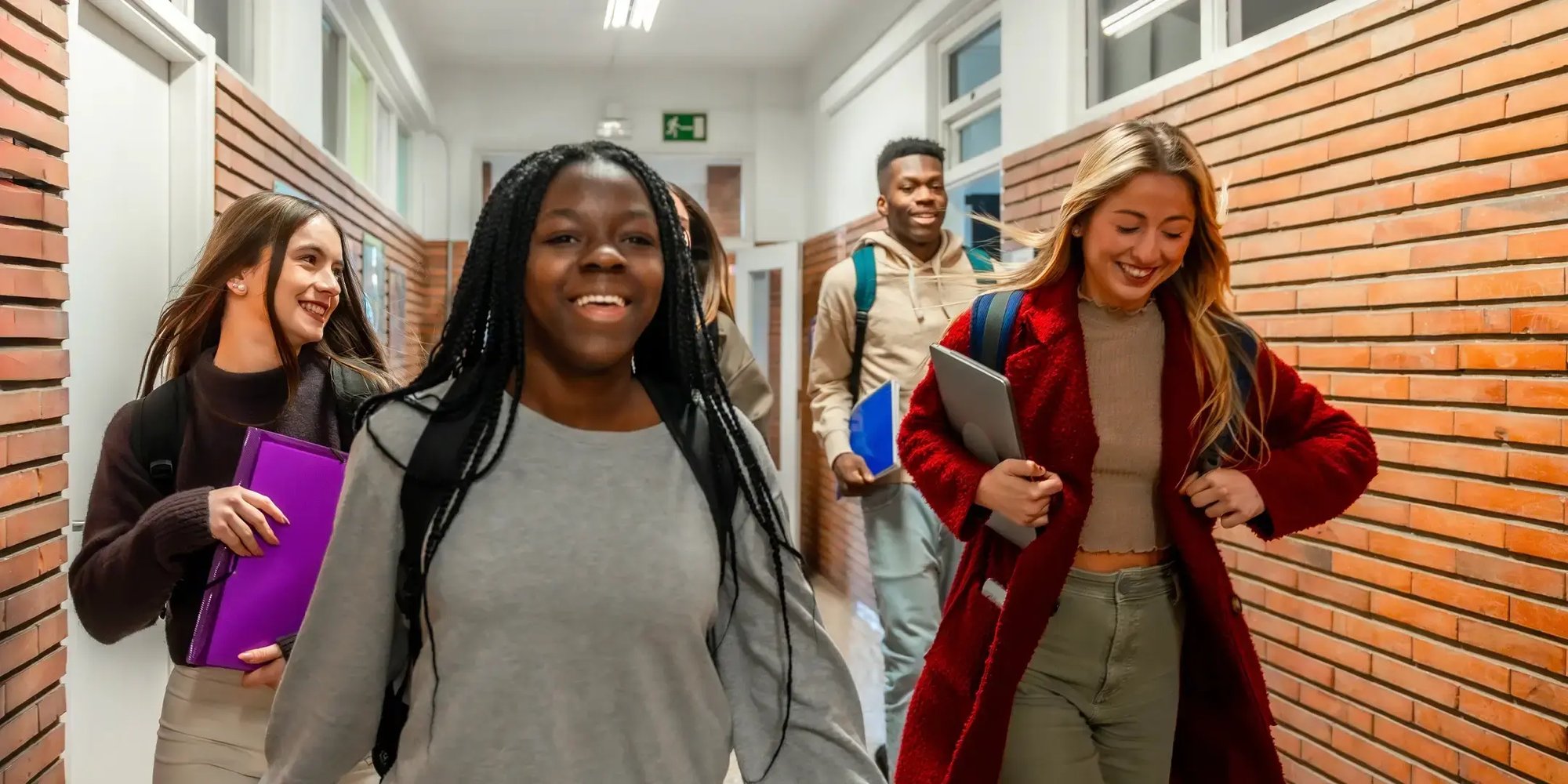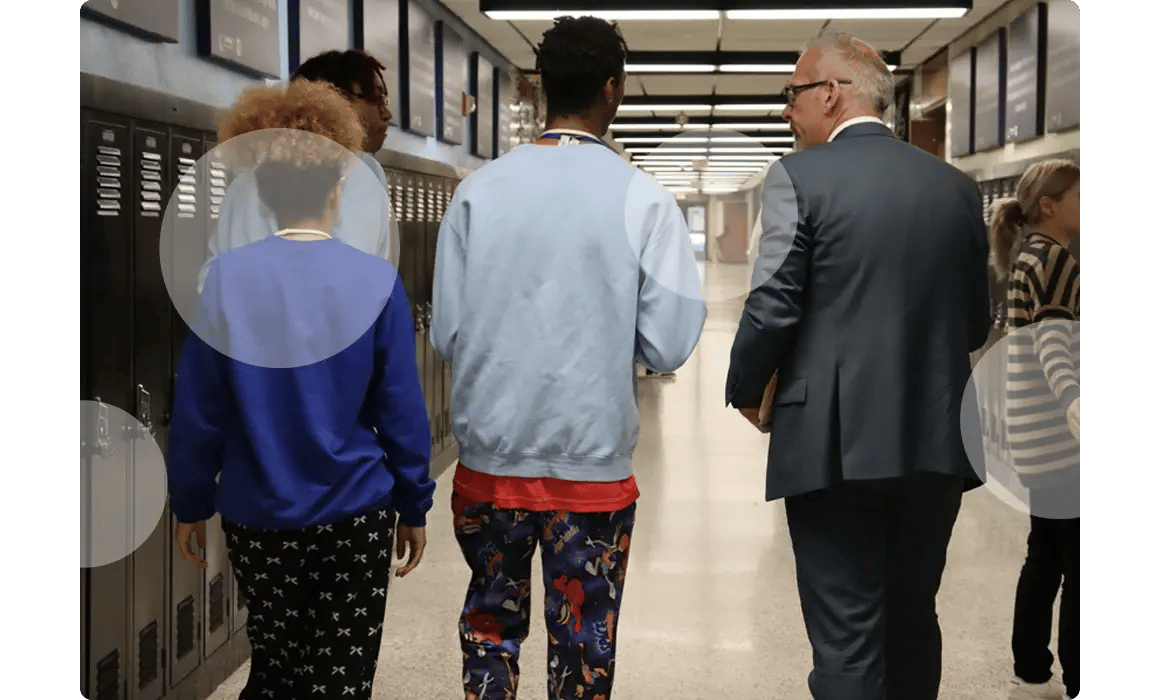
Homeless Educational Services

Every student deserves access to a safe, stable, and supportive educational environment—no matter their housing situation. At ROE4, we work directly with school districts, families, and community partners to identify students who qualify as homeless under the McKinney-Vento Homeless Education Act, removing barriers to education and connecting students with resources that support both learning and well-being.
-
Who Qualifies As Homeless?
The McKinney-Vento Homeless Education Act defines a homeless student as:-
Children and youth who lack a fixed, regular, and adequate nighttime residence, including children and youth who are:
-
Sharing the housing of other persons due to loss of housing, economic hardship, or similar reasons
-
Living in motels, hotels, trailer parks, or camping grounds due to lack of alternative adequate accommodations
-
Living in emergency or transitional shelters
-
Abandoned in hospitals
-
-
Children and Youth who have a primary nighttime residence that is a public or private place not designed for, or ordinarily used as, regular sleeping accommodations for human beings.
-
Children and youth who are living in cars, parks, public places, abandoned buildings, substandard housing, bus and train stations, or similar settings.
-
Migratory children who qualify as homeless because they are living in circumstances described above.
-
Unaccompanied Youth not in the physical custody of a parent or guardian. This would include runaways living in runaway shelters, abandoned buildings, cars, on the streets, or in other inadequate housing: children and youth denied housing by their families, and school age unwed mothers living in homes for unwed mothers because they have no other housing available.”
A school district’s homeless liaison is responsible for determining whether or not a student is homeless, and they must evaluate each situation on a case-by-case basis, taking relative permanence of the living arrangements into consideration.
Students in short-term DCFS placements may not qualify under McKinney-Vento unless they also meet the criteria above. However, they may be eligible for services under the Every Student Succeeds Act (ESSA), and should contact their school district liaison for more information.
If you disagree with school officials’ decisions regarding a homeless child or youth, you have the right to appeal the decision, and can file a complaint with the school district. The district liaison should respond quickly and attempt to resolve the situation, including referring you to free or low-cost legal assistance, should you desire it. If the district is unable to settle the dispute to your satisfaction, you also have the right to appeal to the Regional Office of Education #4, who will appoint an ombudsman hearing officer to your case.
-
-
Rights of Homeless Students
All homeless students have a right to:-
Immediate school enrollment. A school must immediately enroll even if they lack health, immunization or school records, proof of graduation, or proof of residency.
-
Enroll in:
-
the school he/she was attending when permanently housed (school of origin)
-
the school in which he/she was last enrolled (school of origin)
-
the school that non-homeless students living in the same attendance area in which the homeless child or youth is actually living are eligible to attend
-
-
Remain enrolled in his/her selected school for as long as he/she remains homeless or, if the student becomes permanently housed, until the end of the academic year.
-
Priority in certain preschool programs.
-
Participate in tutorial-instructional support programs, school-related activities, and/or receive other support services.
-
Obtain information regarding how to get fee waivers, free uniforms, and low-cost medical referrals.
-
Transportation services: A homeless student attending the school of origin has the right to transportation to and from the school of origin as long as they are homeless and live outside the designated walking distance set by law or, if the student becomes permanently housed, until the end of the academic year.
If you disagree with school officials’ decisions regarding a homeless child or youth, you have the right to appeal the decision, and can file a complaint with the school district. The district liaison should respond quickly and attempt to resolve the situation, including referring you to free or low-cost legal assistance, should you desire it. If the district is unable to settle the dispute to your satisfaction, you also have the right to appeal to the Regional Office of Education #4, who will appoint an ombudsman hearing officer to your case.
-
-
Our Services
Under Section 723(d) of the McKinney-Vento Homeless Education Act, students experiencing homelessness must be provided the following services upon request:-
Supplemental educational surfaces, such as tutoring and other academic enrichment programs
-
Expedited evaluations for educational services
-
Professional development activities for educators and pupil service personnel working with homeless students
-
Health referral services
-
Defraying the excess cost of transportation in order to enable students to attend the school of origin
-
Early childhood education programs for preschool aged homeless children
-
Services and assistance to attract, engage, and retain homeless children and youth and unaccompanied youth in public school programs
-
Before-school, after-school, and summer programs with educational activities
-
Payment of fees and costs associated with tracking, obtaining, and transferring records of homeless children and youth
-
Education and training for parents of homeless children about rights and resources
-
Development of coordination between schools and agencies providing services
-
Provision of pupil services (including violence prevention, counseling, and referrals for such services)
-
Activities to address needs that may arise from domestic violence
-
Adaptation of space and purchase of supplies for non-school facilities to provide services listed above
-
Provision of school supplies, including those to be distributed at shelters or other appropriate locations
-
Other extraordinary or emergency assistance needed to enable homeless students to attend school
-
-
.png?width=300&height=300&name=Rice%2c%20Elmer%20L.%20(1).png)
Contact
Elmer Rice
McKinney-Vento Coordinator
(815) 921-8475
